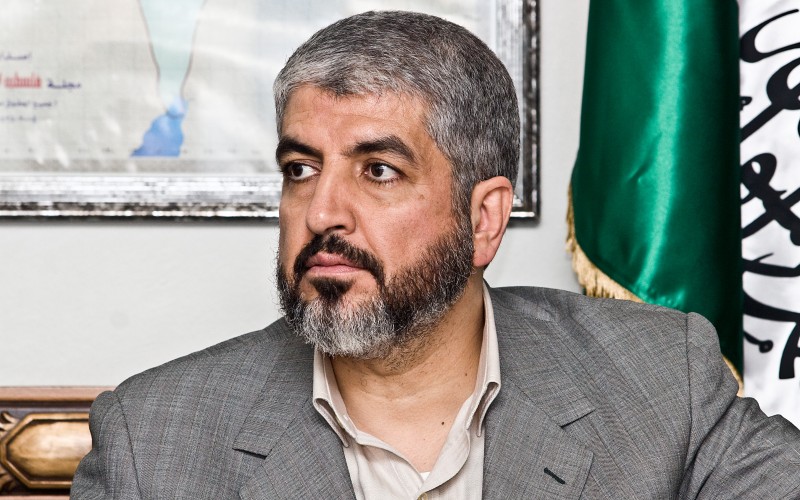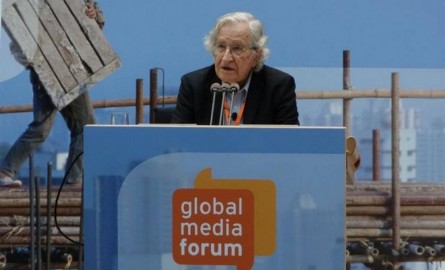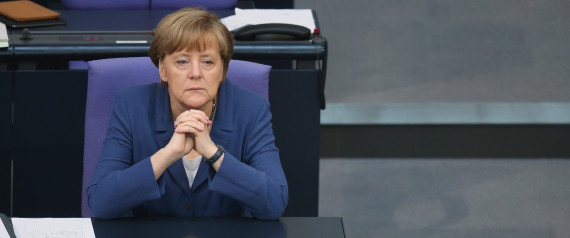In my "Net Assessment of the World," I argued that four major segments of the European and Asian landmass were in crisis: Europe, Russia, the Middle East (from the Levant to Iran) and China. Each crisis was different; each was at a different stage of development. Collectively the crises threatened to destabilize the Eurasian landmass, the Eastern Hemisphere, and potentially generate a global crisis. They do not have to merge into a single crisis to be dangerous. Four simultaneous crises in the center of humanity's geopolitical gravity would be destabilizing by itself. However, if they began to merge and interact, the risks would multiply. Containing each crisis by itself would be a daunting task. Managing crises that were interlocked would press the limits of manageability and even push beyond.
Τετάρτη 22 Ιουλίου 2015
Hamas struggles to cope with regional and internal challenges
Hamas is experiencing internal divisions and external threats as the organization struggles to adjust to rapidly shifting geopolitical dynamics in the region.

On July 1, Wilayat Sinai, a local affiliate of the Islamic State (IS) which used to be known as Ansar Bait al-Maqdis, orchestrated a string of attacks in the peninsula that left over 60 Egyptian soldiers dead. Israeli officials accused Hamas of cooperating with the group.
Why debt sustains corruption in Greece and vice versa
As numerous Greek MEPs opposed the Eurozone summit deal, implementation will require a broad coalition of political parties. This column argues that corruption in Greek politics will prevent the formation of such a coalition. The heavy debt service leads parties to invent extreme ways of responding to super-austerity and to strongly oppose direct reforms that challenge existing clientelism. The way out is to sign a new agreement that combines debt restructuring and radical transparency reforms, including naming-and-shaming practices, to block clientelism in the medium and long run.
Τσόμσκι: “Δεν παίζουν κανένα ρόλο οι εκλογές πλέον στην Ευρώπη”
Σήμερα υπενθυμίζουμε μία ομιλία που έδωσε πριν περίπου δύο χρόνια, τον Ιούνη του 2013, ο γνωστός Αμερικανός πολιτικός φιλόσοφος Νοάμ Τσόμσκι σε ειδική εκδήλωση του Global Media Forum της Deutsche Welle. Όλα όσα είπε για το μέλλον της δημοκρατίας και την κρίση στην Ευρώπη μοιάζουν σαν να γράφτηκαν για σήμερα και την περίπτωση της Ελλάδας.

Το κείμενο είχε δημοσιευθεί στη Deutsche Welle:
Με θέμα το μέλλον της δημοκρατίας και κομβικά σημεία τις αγκυλώσεις της στην Ευρώπη της κρίσης αλλά και στις ΗΠΑ, μίλησε ο Νόαμ Τσόμσκι σε ειδική εκδήλωση του Global Media Forum της DW στη Βόννη.
Να βγει η Γερμανία από το ευρώ λένε οικονομολόγοι
Η πιθανότητα ενός Grexit, κυριάρχησε στην ειδησεογραφία τους τελευταίους μήνες καθώς βρίσκονταν σε εξέλιξη οι διαπραγματεύσεις της Ελλάδας με τους δανειστές της σχετικά με την παροχή ενός νέου προγράμματος βοήθειας και ενώ την ίδια ώρα ετίθετο υπό αμφισβήτηση το μέλλον της Ελλάδας στην ζώνη του ευρώ. Μάλιστα πολλοί ηγέτες της Ευρωζώνης, ιδίως στη Γερμανία, καλωσόριζαν αυτή την προοπτική.

Όμως ορισμένοι οικονομολόγοι λένε πως οι υποστηριχτές του Grexit κάνουν λάθος και αν κάποια χώρα πρέπει να εγκαταλείψει το ενιαίο νόμισμα τότε αυτή είναι η Γερμανία.
Εγγραφή σε:
Σχόλια (Atom)